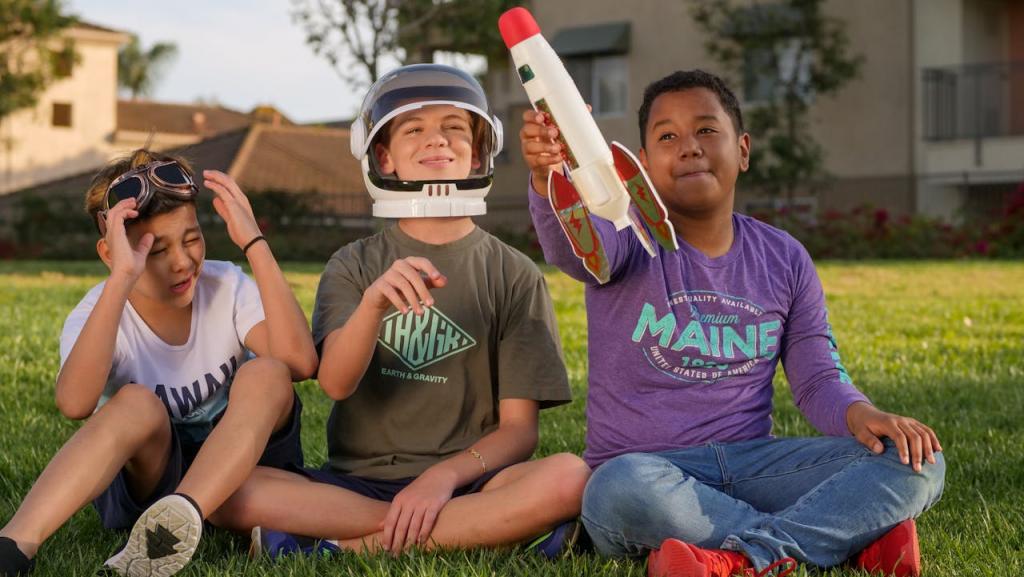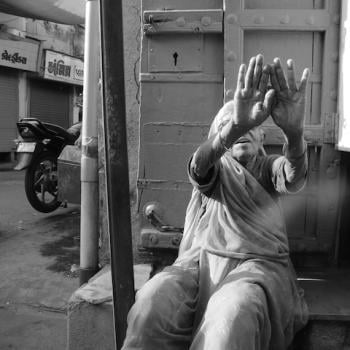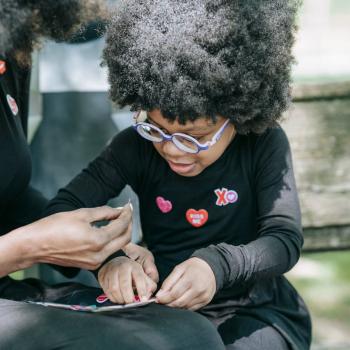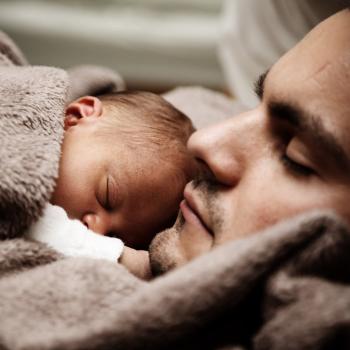
Excerpt from the book Copyright © 2025 by Karl Forehand
Get Some New Friends
“Old friends pass away, new friends appear.
It is just like the days. An old day passes, a new day arrives.
The important thing is to make it meaningful:
a meaningful friend – or a meaningful day.”
– Dalai Lama
I vaguely remember my grade school friends. In second grade, my two friends were a freckle-faced, short person like me and an African American. The black kid could run faster than anyone I had ever seen. When the older kids picked on us, he would get them to chase him until the bell rang, and we all went inside. He put up with me smelling his hair because the grease he used was strawberry scented. I remember my Howdy Doody-like friend being funny and outspoken, which I probably remember because I was very shy.
At that time, I believed we would always be together. However, we moved the following year, and I only hold a few memories of them. I made new friends at my new school and continued to make friends throughout junior high. The only friend I recall distinctly was named Keith, along with a couple of girls I had crushes on and the two people I fought with at various times. I also remember a guy named Kurt who helped me smoke my first cigarette and avoid getting into trouble. For some reason, I tend to remember events more clearly than the people from those times.
I had some close friends in high school. Our friendship did not survive after we all went to college and started the next phase. I still remember most of their names, but I didn’t keep in touch with them after I left for college. Little by little, we grew apart and changed. I had a few close friends in college, but when I tried to contact one of them a year later, he acted like he didn’t even know who I was. I had friends at every job, church, and even church job who didn’t last long after I stopped being there.
Each friendship evolved as my life changed. When I left my job, distanced myself from the church, or shifted my political or spiritual beliefs, we found ourselves on different paths and could not support one another, which led to drifting apart. Looking back, it was likely better for us to allow each other to grow and pursue our individual journeys rather than attempt to maintain a connection that was no longer sustainable.
I don’t regret my growth, changes, or pursuing what matters to me. I don’t even regret friendships that faded, as I’ve come to understand they are part of life’s journey. What hurts isn’t the parting but my actions within those relationships. To keep friendships or form new ones, I often acted in ways that felt inauthentic. Some actions were slightly illegal, and others may have hurt people, and I recognized, even back then, that I was compromising my integrity to win someone’s approval.
This also took place while I was attending church. I went along with beliefs and practices that I didn’t fully endorse. Occasionally, I would voice my discontent, but I was aware of the boundaries I couldn’t cross and didn’t question things in the church as I do now. People often wonder why I would want to criticize the church. I now explain more frequently that I regret some of my past and say, “Because it hurts people.” I have been the bully who caused harm unintentionally, and I have also been the one who was hurt by others. Much of my behavior stemmed from a desire to fit in and to influence what my peers thought, said, and believed.
Sometimes, we grow enough to realize that we don’t even want to be friends with the people we once considered our closest allies. There were scores of people in my former churches who were still racist, homophobic, and harmful to the people around them. It’s hard to see these things when people always put their best foot forward around us, and we have a common goal that we are pursuing together. We are often blinded by our ambitions and beliefs that whoever is involved with us must be good because we believe God is on our side, and he wouldn’t give us someone who is not the best to help us. Sometimes, we struggle to get along with difficult people, and we sometimes inherit their toxicity and way of being.
We must not remain in toxic environments merely to uphold what we initiated, particularly when we recognize the toxicity and when many participants are unwilling to change or reassess their views. Our connections, based on shared interests, may stem from pursuits that aren’t beneficial for either party. While friendships should not be easily discarded and require effort to maintain, our well-being hinges on our ability to discern when to invest more effort and when parting ways is for everyone’s benefit.
In friendships, we often misjudge by thinking that the ends justify the means. Religions sometimes reinforce this by emphasizing the pastor’s vision and the church’s goals. Certain branches of Christianity advocate putting Jesus first, others second, and us last. By fully dedicating ourselves to a country, belief system, or friendship, we risk overlooking our own needs and potentially harming others in our quest for the greater good defined by someone else for the organization.
Starting the path of deconstruction feels akin to losing all our friends simultaneously. Friends ceased to return my calls, and others replied they were too busy to meet or talk. Although I was making new acquaintances, I questioned whether I would ever find a true friendship or would be willing to risk a meaningful connection that could be lost later. Above all, this experience helped me realize that the strongest friendships come at the right time, regardless of duration. My daughter, Abbey, illustrated this for me when I comforted her after she experienced a loss in her friendships.
Lately, I have realized that even some members of my family of origin may never be close again. We grew apart, probably because we pursued our dreams in different parts of the country. Then, because I was in ministry for 20 years, most holidays were spent keeping the programs in the church running instead of going home to meet with my siblings and mother. Jesus talked about leaving home and cleaving to our spouse. Most religions teach and promote this idea, but then, in practice, they make us feel guilty when we don’t prioritize relationships that are outside of our immediate family (including the Church family).
Organizations often doubt our loyalty if they aren’t our primary relationships. Cults and similar groups (including many religions) assert that their communities and leaders should be prioritized, believing they far surpass any personal connections we might have. They often claim to have saved us from something worse and manage our time to limit our involvement in other pursuits. Jesus also promoted this!
Our primary relationships should be guided by honesty, integrity, and mutual benefit rather than longevity. Religious organizations often argue that the primacy of relationships is not to be questioned. Each one believes they are correct, God supports them, and their guidance is essential for spiritual growth and success. This shared delusion has not yielded a strong track record over the centuries. If God is real and embodies justice and love, He would not desire us to remain loyal to a harmful relationship.
I occasionally smile when reminiscing about my past relationships and friendships. My brother is now married to one of my ex-girlfriends, and I fondly remember many enjoyable moments with my friends that helped me learn more about the world. At times, I felt unconditional love, while other moments involved disappointments from those closest to me.
Looking back on it as a journey becomes easier over time than during separation. There are lessons in it, but probably the most beneficial is the wisdom of “You will find new friends!” My interpretation of that stresses that these new friends will possibly be the right ones for the journey ahead, not friends that will keep me in the past.
You will lose friends because they can’t accompany you on the journey, but you will find new friends on the road ahead.
New Friends – Action Steps
What are some reasons why people can’t travel with you? How do you feel when people withdraw from you even though you are working to improve your life? Try to notice when new people come into your life. Spend 5 minutes writing freely about your thoughts on this chapter and the questions that arose for you.
Are you serious about deconstruction and asking bigger questions?
If that’s the case, this book was created for you. As a former pastor, I made the mistake of deconstructing a bit and then trying to start something new, as I was trained to do. The problem with that approach is that I wasn’t ready to begin something new.

I hadn’t delved deeply enough or asked enough questions. The first stage of deconstruction typically includes assessing our beliefs regarding hell and the afterlife, supporting queer individuals and women in their fight for equality, and achieving a better understanding of racism and privilege.
Many people in deconstruction communities expend significant effort criticizing Evangelicals and attempting to gain a following. While I believe they deserve intense criticism, this strategy fails to effectively tackle the problem because they generally don’t listen to us!
Our tendency to punish our former organizations sometimes overlooks the challenging process of healing and growth. It is the same trap we fell into in our former associations.

Listen here or find us on Audible!
Campfires occupy a special spot in the mosaic of history. They act as communal hubs across different cultures and faiths. The campfire’s circular design fosters equal participation within the collective group. The flames at the center draw our focus and encourage face-to-face interactions as we exchange experiences, wisdom, and insights about the world beyond. It is where legendary myths and tales are born.
Order Now – Study Questions in each chapter!
This book is named Campfires in the Desert as it stems from nearly 400 discussions we held with individuals on our podcast, The Desert Sanctuary, and our aspiration to improve.
Available now!
Thanks for considering us, autographed copies are $20
Karl Forehand Campfires in the Desert – A Soft Book Release Karl Forehand is a former pastor, podcaster, and award-winning author. His books include Out into the Desert, Leaning Forward, Apparent Faith: What Fatherhood Taught Me About the Father’s Heart, The Tea Shop, and Being: A Journey Toward Presence and Authenticity. He is the creator of The Desert Sanctuary podcast and community. He has been married to his wife Laura for 35 years and has one dog named Winston. His three children are grown and are beginning to multiply! You can read more about the author here.
















